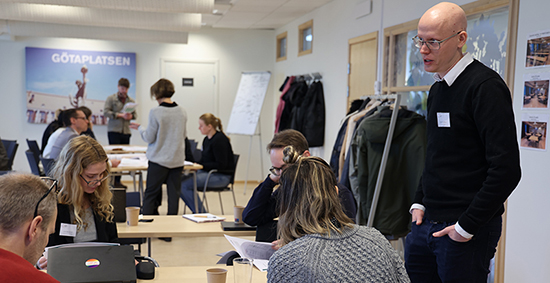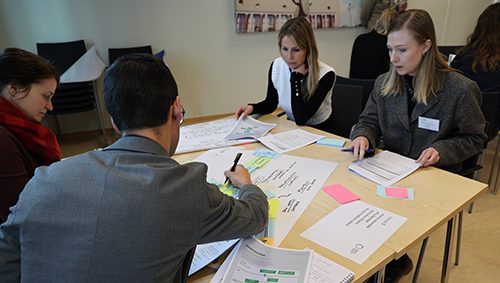Two-day course in Applied life cycle thinking
The life cycle perspective, understanding the environmental impacts of a product or service throughout the value chain, is gaining increased importance in business as well as in public sector and authorities.
In this two-day course you will get a deeper understanding on how to apply life cycle thinking in your organization, through real cases and proven methods. You will get sufficient time to practice your new skills during the course and ask the experienced course leaders and guest lecturers for support.
Target group
The course is aimed for you who need a better understanding of the life cycle perspective, life cycle assessment (LCA) and its role for sustainable development in your organization. No previous knowledge of LCA is required to attend the course. Which is also one of the course’s greatest strengths as the course suits people at different levels of knowledge and interest. The common denominator is the participants’ focus on sustainability, but the participants work, for example, as strategists, environmental coordinators, environmental managers, buyers or investigators in both business and public sector.
The course provides knowledge in:
- How a life cycle perspective affects companies and authorities.
- What LCA is and what benefit it can give you.
- Specific application of the lifecycle perspective in various functions and activities, eg in procurement and environmental communication.
- Product Environmental Footprint and other life cycle-based policy development nationally and globally.
- How to implement life cycle thinking in your organization.
Course objectives:
After the course, you have the knowledge and inspiration to use a life cycle perspective in your own business. You know the concepts of life cycle thinking and life cycle management and have gained comprehensive examples of how they can be applied for increased business benefit and for strategic decision making. You have gained an understanding of life cycle assessment as a method, its applications, strengths and weaknesses, and you are confident in using life cycle information in your work.


Course leaders and guest speakers
The course leaders have long experience from academia, research institutes as well as working with organisations’ sustainability work. Together with handpicked guest lecturers for each course opportunity they will provide you with the tools you need.
Karin Sanne – course leader
Karin Sanne is head of Life Cycle Management Group at IVL Swedish Environmental Research Institute. She has a MSc. in Chemical Engineering from Chalmers University of Technology and has worked with applied life cycle perspective both as assessments like LCA/EPD and strategic in industry organizations and Research Institute during more than twenty years. Karin gives regularly trainings around LCA methodology and use of life cycle thinking.
Kristian Jelse – course leader
Kristian Jelse is a sustainability consultant and the owner of Greendesk. He has a MSc. in Engineering Physics and Industrial Ecology from Chalmers University of Technology, and has since 2008 worked with applying, developing and communicating the life cycle perspective and its applications. He has previously organized trainings and seminars in Sweden and abroad, and been a recurring guest lecturer at universities on the topics of LCA, EPD and environmental communication.
More information
If you have any questions please send an e-mail to lifecyclecenter@chalmers.se or call +46 (0) 31-772 4961.

